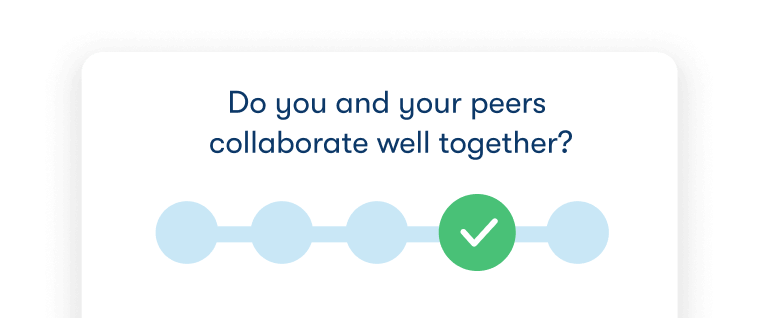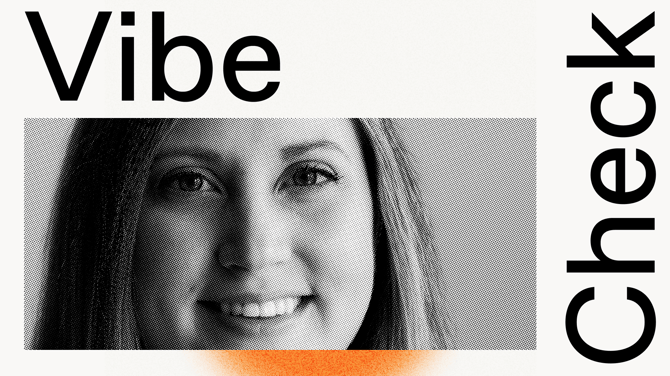We had the pleasure to interview Anh Phillips, Global CEO Program Research Director at Deloitte, about her new book Work Better Together. In this book, she and her co-author Jen Fisher discuss the critical importance of nurturing relationships at work. A subject that affects all managers around a world where telecommuting and digital communication are becoming the norm for human interactions.

"Companies cannot run on machines alone. They need people to fuel their creativity, problem-solving, and critical thinking."
Anh Phillips, author of Work Better Together
We talked to Anh about what motivated them to write Work Better Together, how it plays an important role in today's world, the challenges managers are experiencing today, and why it is that she and Jen describe relationships as crucial.
This interview is full of tips, advice, and solutions for managers who are looking to thrive in the digital era. Learn from Anh's expert advice on some of the most important questions managers have today about collaboration and technology.
A little bit about the book: Work Better Together
As described on Work Better Together's site, Anh and Jen "discuss why human skills, like relationship-building, empathy, and emotional intelligence, will be essential to the future of work. Remote work and our 'always on' society is increasing isolation and burnout." These phenomenons are negatively impacting employees' levels of happiness and engagement.
Anh and Jen's focus on relationships comes from what research has proven again and again. "Authentic, trust-based relationships increase job satisfaction, leading to greater engagement, higher productivity, longer employee retention, and even decreased health care costs."
Our interview with Anh Phillips
Welcome, Anh! Could you start by telling us a little bit about your background and what you've been working on recently?
My background is actually in Management Consulting. I started off my career by helping companies think about ways in which they could better connect with their customers. A lot of it was around implementing technology. But for the past 10 years, I've been doing research around disruption. Basically, how to thrive in a constantly changing and unpredictable world. A lot of that means focusing on the potential of people.
"I think that sometimes we get too caught up in the process of developing and implementing technology. And we tend to forget that, behind any tech product, at the beginning and at the end, there is a human being."
I'm curious to know, when you started writing Work Better together, was it before the pandemic hit and the whole world changed, or did you write the book because the entire world changed?
We had the idea to write the book about one year before the pandemic hit. But we actually started writing the book when the pandemic hit. It actually helped us emphasize even more the need and the importance of the things we were planning to write about.
We were already seeing the beginning of what we called The Big Disconnect. People were already missing the human connection, even in small scenarios like having a random conversation with a stranger at a store. That was always at the basis of Work Better Together.
The idea is that we all need that deep human connection, especially in the workplace, where we spend a third to half of our waking hours in any given week. It’s a great opportunity to have real connections.
As a senior consultant and researcher, how did your experience help you write a book during a changing world full of unprecedented protocols?
In my many years of experience as a consultant, everyone was having the same issues. Struggling with people motivation, unwillingness to take risks, struggles to change the culture of their organization…
Basically, people-related things. It wasn’t the work that was the barrier. It’s usually something on a personal level. We're at a point in time where the place and the work people do are changing. All of it is shifting. So, we have to find a way to shift it, intentionally, in the right way.
My experience allowed me to explore the question: how do we pair the best human capabilities with the best technology to create a world that is better for employees, for products, and for our customers? This question became even more relevant during the pandemic.
In your opinion, what's the biggest challenge managers and leaders experience when building remote relationships versus in-person relationships? Moving from in-person to a digital context.
When you're in person, a lot of things are built into your environment. There are many unplanned opportunities to talk to people. But when you’re working remotely, you can’t rely on the serendipity of talking to a person who happens to be walking down the hall.
You now have to create those moments and be more intentional about them. It becomes a proactive act rather than passive participation.
"At the core, it's about reflecting. If I'm no longer meeting someone accidentally, how can I think about connecting more? That can be something as simple as saying, let’s take a minute to talk about really how you’re doing, really."
And on the flip side, do you see any opportunities in remote and hybrid workplaces when it comes to building relationships?
We’ve seen relationships strengthen in the virtual environment. For example, some of our meetings have become more casual. Some people have told me things like: 'I didn't know so much about my coworkers' life outside of work before remote video calls!' We get to see people's kids, pets, spouses, and we get a sense of what their home life is like. And that was a big lesson about all of this. How can we share more about who we are as human beings?
There's a lot of information about how to improve wellbeing in the workplace. Stress, burnout, you name it. You and Jen chose to focus on relationships, why is that?
Most people don’t think about relationships as being so critical to wellbeing. But they are. There's a Harvard study I'm particularly fascinated by about adult development. It is the longest longitudinal study that has ever been conducted. They found out that the strength of personal relationships is what contributes the most to a long, happy life. And yet, nobody is talking about this.
When we talk to managers, many of them express a common concern in that some relationships come more naturally than others. We get along better with some people than with others, and that’s normal. Do you have any advice for managers who want to stay as fair as possible?
We shouldn’t try to create artificial relationships. We’re not advocating that you become best friends with everyone in your organization. That is simply not possible or practical.
The key for managers is: one, figure out how you can take a step back and be objective about being fair. Reflect on whether any of the decisions you make are influenced by the relationships you might have. Keep that self-awareness. And two, think about those team members you aren't creating a closer relationship with, and figure out how to deepen that relationship. How can you build more trust and full respect for who they are?
It’s really about wanting the best for all your team members, and in that way doing your best to be fair with all of them. If you come into every relationship with the understanding that you have a big role to play in terms of people's development and success in the team, and you care about them, you’ll end up in a better place.
In Work Better Together, you mentioned the importance of a proper tech stack. In your experience, where do you think managers should start? Communication tools, project management tools, feedback tools, engagement tools...?
I would start by understanding what are your team's pain points. So, what are people struggling with? Is it communication, for example? Do they feel like there are too many meetings? Then, maybe you should start with a collaboration platform.
Managers need to know that it's not all about the choice of which specific technology they decide to implement, but rather how people choose to use that technology. For example, we can all choose email as our primary tool of communication. But if everyone in the team chooses to use it differently and inconsistently, that could lead to some people sending 100 emails a day to let everyone know what's happening, and others sending one long summary. These inconsistencies can generate frustration and resistance to adopt the technology.
It's very important that you sit down with your team and talk about, at a tactical level, what are the behavioural guidelines and practices you want to put in place as a team. And as people start seeing the benefit of using the tool, implementation will be so much easier.
One last thing. Don't be afraid to test it and see if it works. Keep a continuous evolution and take the time to learn how to better use the tool as your way of working evolves.

Officevibe is an employee survey and feedback tool. You can find out what the pains in your team are and gather feedback on the quality of their collaboration, relationships, working setup, resources, and overall happiness! Keep an eye on the things that are working for your team and tackle the areas where they need help right away, all while automating the technical work.
No need to guess, theorize or overthink. Know exactly what your team needs by asking them the right questions. You can sign up for free and learn more here.
What's one thing you would want people to take from reading the book?
That relationships and human connections are critically important. You need to take the time to prioritize and nurture them. They won't grow on their own. With some small behavioural adjustments, you can find ways to continue to nurture relationships and grow them.
Dismiss these ideas that work is not a place for friendships. You can have human connections at work, and they can really help you and your coworkers.
Work Better Together is a modern guide for today's managers
Even though our world has changed a lot, many of our challenges remain the same at the core. And that is, the way we connect and interact with each other. At the center of everything, there are people. If we want to thrive in the digital world, we need to study how we relate to one another.
Your choice of technologies, working methodologies, communication approach, and all of the decisions that affect your day-to-day will become less of a barrier if you actively focus on the relationships you build at work and with your team. Even in a digital-first world, people are still at the heart of your company. Your ability to connect with people will define your levels of success in managing a happy, productive team.
Work Better Together is a book that brings modern managers and today's teams together — no matter where or how they choose to work.
Let's start by asking our teams how things are really going, and take it from there.
Equip HR and managers with tools to engage, recognize, and drive performance.




